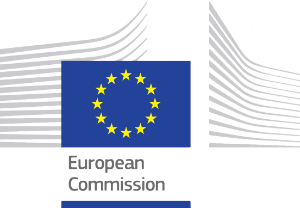When working with AI in museums, especially with Generative Artificial Intelligence (GenAI), it is crucial to use a model that considers important critical aspects, such as the scientific accuracy of results and the ethical implications related to the use of personal and training data. In this regard, multimedia chatbot and AI tools based on Smart interaction with the descriptive content of the museum collection considered the fairness of the models used and compiled a proper ReInHerit Ethics Cards, to avoid ethical issues and errors.
Organisation in charge of best practice
MICC - Media Integration and Communication Center - UNIFI
Location
Online Florence IT
Dates
January 2022 - December 2023
Description
Important steps and recommendations for regulating GenAI based on a human-centered approach include concerns related to the Ethics of AI Chatbots, user privacy policy compliance, training data, and the scientific accuracy of chatbot outputs. The development of artificial intelligence applications involved extensive training on datasets. Ensuring that the final training data is ethically sourced, unbiased, and devoid of discriminatory content is crucial for maintaining the ethical integrity of AI tools.
- Training data: AI applications involved extensive training on large data sets. It is crucial to ensure that the final training is ethically sourced and respect the privacy of users.
- Transparency: Chatbot must be transparent about how the data is used and ensure that the data is stored securely and, where appropriate, anonymised.
- Scientific accuracy: Chatbot responses must be tested and validated by museums. This is especially important for applications that provide historical or scientific information to museum visitors through solutions that avoid AI “hallucinations”.
The ReInHerit project created Ethics Cards for the developed applications, considering fairness and all the ethical issues associated with a user-centered approach with AI/CV. These cards analyse different aspects of the applications such as Training Data (Dataset and Model cards used, bias discrimations) User Data (user data collection, privacy, transparency, use Third part…) Data Security (data protection, cyber-attacks) Copyright aspects (copyright for the training data)

ReInHerit Ethics Cards
To guarantee quality content, the descriptions of the artworks accessible to visitors during the Smart Interaction and the data used by the VIOLA Multimedia Chatbot have been provided by by the Museums involved in the ReinHerit Project (GrazMuseum, Cycladic Museum, Bank of Cyprus Foundation) The content used by the chatbot is provided by curators using a specific interface. System do not rely on something “memorized” by the chatbot. The questions of the users are encapsulated in other instructions (prompt engineering) that instruct the chatbot to answer only using the curated material.
Links
Resources needed
Digitization of collections Text descriptions and open data IPR on images and content and open data Museum Dataset Updated datasets free of bias Model cards for selected neural networks.
Challenges encountered
Specific areas of resistance within the museum due an old conservative mindset of a closed museum focused only on collections, objects and not on visitors’ interaction. The Lack of digital skills by museum staff and mediation skills in all areas of technology and museums to create an interdisciplinary dialogue. Lack of Data entry, Data sets, management Algorithmic bias, Legal roles and code of ethics.
Evidence of success
Successful testing of the apps with diverse users (age, ethnicity, etc.): the apps have been tested in multiple venues with diverse users, without issues related to visual appearances. Collaboration with museum curators for the creation of the test datasets and collection of materials for deployment: the curators involved in the project have selected the artworks used, the describing materials and filled the ICOM-based cards describing the selected artworks Awards AI/CV communities: the scientific communities in multimedia and computer vision have awarded the developed applications in demo competition associated with the foremost scientific conferences in those fields.
Potential for transfer
The ReInHerit model cards could be used in other projects and processes, complementing the model cards used in AI/CV communities. The ReInHerit cards can open a connection between the Digital Hub and other CH projects and networks working on the introduction of AI in museums.
Further Information
The recent explosion in generative AI means that museums have to quickly adapt to the new landscape and understand how to make the most of it ethically. The ReInHerit Toolkit was presented as an Italian case study at the “Museums+AI Workshop” IULM AI LAB in Milan, Italy, on October 9th, 2023, organized by Dr. Giuliano Gaia – InvisibleStudio and Dr. Oonagh Murphy, Goldsmiths University /AI+Museums Network. 12 The experience and reference to this important Network is useful for testing and updating the ReInHerit Toolkit following an interdisciplinary, sustainable, and up-to-date approach to the impact of AI in the museum world. Italian case studies from this workshop will be included in the Italian translation of AI: A Museum Planning Toolkit.
Get in touch
Click here to send us an email, if you have any question or comment on this best practice.

